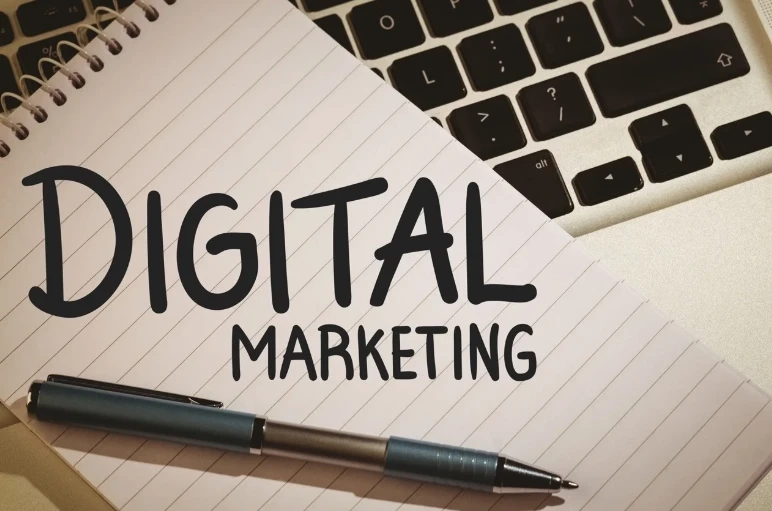In the fast-paced world of modern business, establishing a strong digital presence is no longer optional—it's essential. With consumer behaviours constantly evolving and technology reshaping the marketplace, companies must meet their audience where they spend most of their time: online. This is where digital marketing services come into play, serving as the driving force behind successful online engagement, visibility, and growth.
From small local start-ups to large enterprises, businesses of all sizes can harness the power of digital tools to reach new customers, enhance brand awareness, and stay ahead of competitors. But what exactly does digital marketing entail, and how can it be tailored to meet your unique business goals? This comprehensive guide delves into the core components, benefits, and strategic approaches that define this dynamic field.
Understanding the Scope of Digital Marketing
At its core, digital marketing refers to the use of online platforms and technologies to promote products, services, or brands. Unlike traditional marketing methods such as print advertising or billboards, digital marketing allows for direct interaction with consumers, measurable results, and the ability to fine-tune campaigns in real time.
The spectrum of digital marketing services is broad and encompasses a variety of channels including search engine optimisation (SEO), pay-per-click advertising (PPC), content creation, social media marketing, email campaigns, influencer partnerships, and web analytics. Each service plays a unique role in helping businesses navigate the online landscape and connect with their target audience.
In today’s multi-device, multi-channel world, a comprehensive digital strategy must consider the customer journey across multiple touchpoints—from initial discovery to final conversion and beyond.
Key Points of an Effective Digital Marketing Strategy
A well-rounded approach to digital marketing involves more than just launching a few ads or posting sporadically on social media. It requires a deep understanding of your audience, clearly defined objectives, and the seamless integration of various tactics to drive consistent results. Let’s explore the pillars that underpin a robust online marketing campaign.
Search Engine Optimisation (SEO)
If your business doesn’t appear on the first page of results for relevant search terms, chances are potential customers won’t find you. SEO focuses on improving your website’s visibility by optimising technical elements, keyword placement, content quality, and user experience.
A strong SEO strategy increases organic traffic and builds credibility, positioning your brand as an authority in its industry.
Content Marketing
Quality content is the foundation of digital engagement. Whether it's through blogs, videos, infographics, podcasts or downloadable guides, informative content nurtures trust, educates your audience, and encourages them to take action.
Content marketing is not only effective in communicating value but also works synergistically with SEO, social media, and email marketing efforts to attract and retain customers over time.
Social Media Management
Social platforms like Facebook, Instagram, LinkedIn, and Twitter offer businesses an opportunity to engage in two-way conversations with their audience. Through regular posting, interactive content, and targeted advertising, brands can strengthen customer relationships and expand their reach.
More than just followers and likes, social media success hinges on authentic engagement and community building.
Paid Advertising (PPC)
For quicker results, paid channels such as Google Ads and social media ads can be incredibly effective. Pay-per-click campaigns allow businesses to reach specific demographics based on location, interests, behavior, and more.
Additionally, PPC can be a valuable complement to organic efforts, especially when launching new products or entering new markets.
Email Marketing
Whether it’s a newsletter, promotional offer, or follow-up series, email campaigns can significantly influence purchasing decisions and customer retention.
The Benefits of Embracing Digital Marketing
The decision to invest in digital marketing services is more than a tactical choice—it's a strategic one. Digital marketing opens the door to measurable, scalable, and customisable growth.
One of the most compelling advantages of digital marketing is its ability to level the playing field. Unlike traditional media that typically Favors larger budgets, digital channels offer affordable entry points and scalable options for businesses of all sizes. With the right tools and strategies, even a modest marketing budget can deliver impressive results.
Another significant benefit is the real-time nature of data and feedback. With analytics and tracking tools, marketers can monitor campaign performance, understand user behaviour, and adapt strategies instantly. This agility enables brands to remain relevant and responsive in an ever-changing environment.
Additionally, digital marketing supports highly personalized experiences. From tailored email content to dynamic website recommendations, businesses can deliver messages that resonate with individual consumers, improving engagement and conversion rates.
Tailoring Services to Industry Needs
Not all industries have the same requirements when it comes to marketing. A retail e-commerce platform, for example, will benefit from dynamic ads and product-focused SEO, while a law firm may rely more on educational content and trust-building strategies.
The adaptability of digital marketing services means they can be customized to meet the goals, target audiences, and compliance standards of various industries—from healthcare and education to real estate and hospitality.
For business-to-business (B2B) companies, the focus often shifts towards lead generation, nurturing relationships through long-form content like whitepapers and webinars, and professional networks like LinkedIn. Meanwhile, business-to-consumer (B2C) brands may place more emphasis on visual storytelling, influencer collaborations, and seasonal campaigns.
The Role of Analytics and Continuous Optimisation
One of the hallmarks of successful digital campaigns is their ability to evolve. Unlike static print ads or broadcast spots, digital marketing is iterative by nature. By leveraging web analytics and consumer insights, businesses can refine their messaging, improve targeting, and enhance user experiences.
Key performance indicators (KPIs) such as conversion rate, click-through rate, bounce rate, and cost per acquisition offer a clear picture of how campaigns are performing. These metrics inform decisions on budget allocation, content creation, and channel strategy.
Ongoing optimisation ensures that digital marketing services remain aligned with business goals and market trends. A data-first approach enables companies to learn from past efforts and anticipate future opportunities, maintaining a competitive edge.
Building Trust and Credibility Online
In the digital age, trust is currency. Consumers are increasingly discerning about the brands they interact with online. They value transparency, authenticity, and consistency. A well-crafted digital marketing strategy contributes to building that trust.
Professional website design, informative content, secure browsing experiences, and responsive customer service all play a part in shaping brand perception. Active social media engagement and customer reviews further reinforce credibility.
Moreover, providing value before asking for a sale—through content, offers, or free tools—establishes your brand as a helpful resource rather than a pushy advertiser. Over time, this approach fosters loyalty and turns customers into advocates.
Preparing for the Future of Digital Marketing
The digital landscape is in constant motion. Technologies like artificial intelligence, machine learning, voice search, and augmented reality are redefining how consumers interact with brands. Businesses will increasingly rely on AI-powered tools to predict customer needs, automate routine tasks, and deliver consistent experiences across all channels.
Moreover, sustainability, ethical data usage, and inclusivity are becoming central themes in digital communication. Brands that align with these values are more likely to win the hearts and minds of the modern consumer.
Conclusion
Navigating the complexities of the digital world can be overwhelming, but with the right strategy and support, it can also be incredibly rewarding. Embracing digital marketing services is no longer just about being online—it’s about thriving in a connected economy.
From building brand awareness to driving sales and fostering long-term relationships, digital marketing empowers businesses to reach new heights. It provides the tools, data, and flexibility needed to connect with audiences in meaningful ways and stay relevant in a rapidly evolving market.
In the end, success in the digital arena doesn’t come from a one-size-fits-all approach. It’s the result of thoughtful planning, continuous learning, and the effective use of technology to deliver value at every stage of the customer journey.


